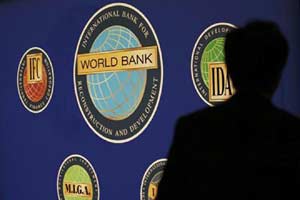India, the World Bank’s largest borrower, has objected to the multilateral funding agency’s proposed shift to more stricter rules for lending including one that would make it obligatory on countries to get the consent of people affected by the projects concerned.
The new Environmental and Social Framework (ESF) that the World Bank is discussing with its member countries proposes to make “free, prior and informed consent (FPIC)” a prerequisite for funding. Currently, only prior and informed “consultation” with the project-affected people is required for the approval of funding.
A government official told FE that India is not against sustainable development that takes into account rights of indigenous people and the implications for the environment, adding that enough checks and balances such as the Land Acquisition Act are in place to to deal with such issues. Since the domestic laws and systems to protect environment and the vulnerable sections of people are robust, the World Bank would do well to exempt India from the proposed new rules, he said. “This (FPIC) will be the last straw. People will be using this as a weapon to stop development projects,” the official said.
In a communication to the World Bank, India is learnt to have argued that of about 500 ESF standards, some 54 required to be changed/diluted. The issue was also raised by the government when World Bank managing director Mulyani Indrawati visited the country last month, sources said.
Giving example of ESF standards that are cumbersome, the sources said in the case of infrastructure projects (like roads), before trying compensatory afforestation, other options — which could prove to be costly — could be exhausted.
Similarly, as per the proposed ESF, coal-fired power plants won’t be financed. Having committed to cut emission intensity by 30-35% by 2030 by various means like technological changes, augmentation of renewable energy sources and aggressive afforestation as part of the multilateral climate change action plans, India feels that some of many of environmental conditions proposed by the World Bank are redundant.
The bank, meanwhile, is understood to have suggested a road test for the new ESF standards on some new projects.
The World Bank, sources said, will hold its first India stakeholders consultations on the new safeguards norms in November. It would include representatives from ministries such as finance, environment, road and power while the social sector would be represented by NGOs. In the next six months, the bank may finalise the ESF draft.
Even though the average World Bank annual financing for India has been in the range of $3-4 billion in recent years, it is still an important source of long-term funds for infrastructure projects. India is the largest borrower from the World Bank with cumulative commitments of $100 billion since 1947. It funds projects mainly in sectors such as roads, energy, agriculture, health and education.
Despite persistent attempts, the government could not carry out the amendments to the Land Acquisition Act that proposed to do away with the consent and social impact assessment provisions for acquisition of land for infrastructure and industrial projects. The consent clause under the Act necessitates the approval of at least 80% of the affected families in the case of land acquired by the government for private companies, and of at least 70% in the case of land acquired for public-private partnership (PPP) projects. Those who part with their lands are also offered compensation equal to twice the market value of the land in urban centres and four times the market value in rural areas. Further, the acquisition of irrigated multi-cropped land is all but prohibited. Following stiff opposition in Parliament, the government dropped the plan to remove these clauses. However, the Modi government is keen to make land acquisition for development purposes easier and prompting states to relax the land rules in their own discretion.
